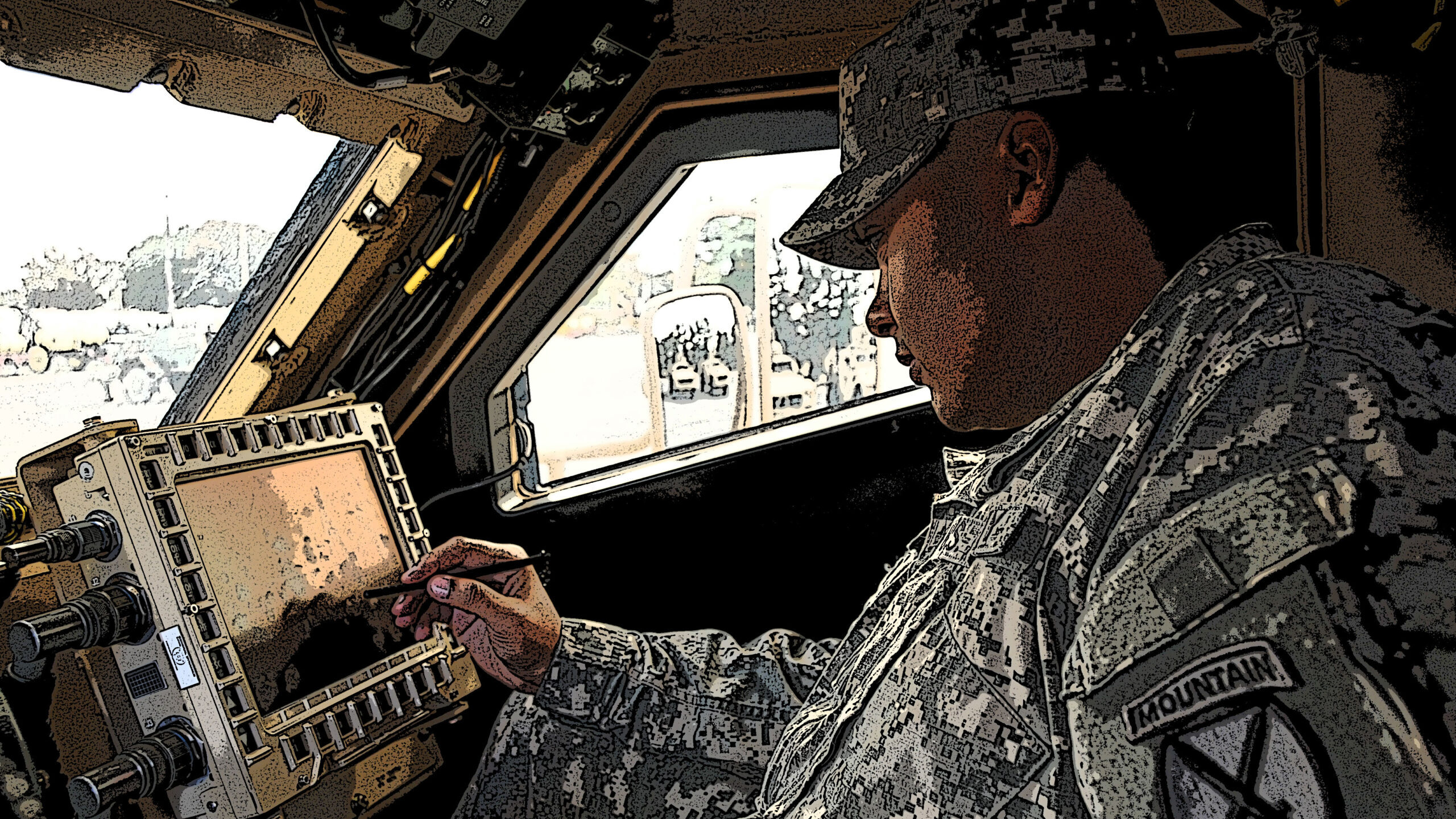
The Army is trying to find a way to get information to its soldiers, in a creative way. (Photo by: Claire Heininger, U.S. Army; Stylized by Breaking Defense)
WASHINGTON: It’s not unusual for the military to seek out specialized contractors with a unique set of skills. But a new solicitation has the Army looking for someone with a more artistic bent — someone who can take technical information about the service’s cyber and weapons of mass destruction strategies and turn them into comic books.
According to a SAM.gov notice, the Army Cyber Institute wants to use science-fiction prototyping (SFP) — science-fiction stories, graphic novels/comics, movies and animations to explore the implications of futuristic technologies — to support the service’s and NATO’s research about future operating environments.
“This includes: ARCYBER’s research on transforming into an information warfare command, HQDA G3 Protection Teams Insider Threat education initiative, and NATO’s research into emerging destructive technology coupled with the employment of weapons of mass destruction,” according to the notice. “The purpose of these SFPs is to help ARCYBER, DOD and NATO envision operations in the environments of the future (10 years out).”
The service wants one graphic novel on information warfare and two graphic novellas on weapons of mass destruction, with both products incorporating current Army and/or NATO doctrine and technological trends.
The intent of the comics is to generate conversation within the Army community and a more broad audience about potential threats and how the service is preparing to deal with them.
“The storyline will focus on the intersection of digital surveillance and privacy (or erosion thereof), insider threat and extremism,” according to the notice. “The intention of the book is to help Army leaders envision future information related threats, operations and expand the body of knowledge through futures research.”
RELATED: Army Wrestles With ‘Information Advantage’
There’s a long history of using science fiction to game out real-world issues. (Breaking Defense’s own Theresa Hitchens recently wrote about how The Expanse books and tv show is a cautionary tale for space colonization.) As Steve Leonard, author of the Doctrine Man comics and a former Army strategist, told Breaking Defense, sci-fi provides a great “safe space” to explore ideas and issues.
“We could watch an episode of Star Trek dealing with Starfleet and the Klingon Empire providing support to inhabitants of a planet, for example, and not realize that we were seeing commentary on the ethics of proxy war,” Leonard said. “Translating that to a graphic novel is also a smart move, putting the narrative into a medium that is more visually compelling. I mean, we can all read a white paper, but a graphic novel — especially one well written and drawn — will convey the ideas a lot better.”
He noted that the contract has enough structure to it that the Army could get what it wants, but “not so much that it restricts creative license” for the artist.
“That’s a novel approach, and not at all what I’d normally expect to see,” he said. “That’s promising, in my opinion.”
The Army isn’t the only branch of the military that has dabbled with using sci-fi as an educational tool. The US Naval Academy has been hosting a sci-fi convention called NavyCon since 2017, where panelists gather to talk about sci-fi and lessons learned that can help the service think differently in the future.
But not all military-sci-fi-comic-book endeavors from the defense establishment have been successful, especially when they go beyond the boundaries of the military community. In 2017, Marvel Entertainment announced and then, due to backlash, subsequently canceled a planned partnership with Northrop Grumman to unveil a new comic targeted at encouraging kids to go into STEM fields,
The comic would have featured a team of “Northrop Grumman-themed heroes,” Defense News reported, but a tweet announcing the partnership elicited such bad reactions that Marvel Entertainment ended up canceling the partnership just a few hours later.
Move over FARA: General Atomics pitching new Gray Eagle version for armed scout mission
General Atomics will also showcase its Mojave demonstrator for the first time during the Army Aviation Association of America conference in Denver, a company spokesman said.


























